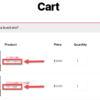
Sales agents and representatives are an integral part of many businesses’ operational models. However, there’s little to no support in WooCommerce by default for agents, as the platform is built and optimized for typical retail shops.
Managing customers and customer relationships is critical for any business, but even more so for businesses with a large customer base, high transaction values, B2B, wholesale, or affiliate models. Agents are the link between the business and the customer, and may be doing everything from providing sales counsel, to taking and placing orders, or even directly managing and handling individual customer orders.
Each shop might work differently, but what they have in common is that they need an ecommerce solution capable of giving agents a platform with powerful, but limited control over customers and orders.
In this article, we’ll take a look at how a WooCommerce business can add and manage sales agents, as well as useful tricks, tips, and plugins that can help.
Sales Reps Management Requirements
The most important features one may look for in a platform would be:
- Dedicated dashboard for each agent where they can manage their own customers
- The ability to setup and manage commissions, incentives, earnings and payouts
- Marketing features for agents so that they can incentivize customers to purchase
- The ability to take orders for customers
- Sales teams, and the ability to coordinate and communicate between shop and agents
While there are individual solutions for each feature, you can also use a plugin such as SalesKing – Sales Agents & Reps Plugin for WooCommerce that aims to offer a complete Sales Reps management package and take care of everything a shop needs to add and manage agents.
Sales Agents Features: An In-Depth Look
1. Custom Dashboard
First of all, agents need to have a central place from where they can manage customers and orders. One way to achieve this could be to use create a special agent role, and then use a plugin such as User Role Editor to control the abilities and permissions of the role. For example, you could use this technique to give an agent control over customer orders, but no control over shop settings.
If you’re looking to achieve this with a plugin, SalesKing automatically adds an agent dashboard page on installation, and each agent has a dedicated login, as well as the ability to control settings such as notifications for messages or announcements.
This way, each agent can view and track their performance, balance, earnings, as well as view and manage orders, customers, coupons, affiliate links, payouts, and so forth.
2. Earnings and Payouts
When looking at solutions that handle balances, earnings and payouts, the most important things to look for are security, reliability, as well as reports that give insights into sales statistics.
SalesKing handles this through a commission structure system (with fixed, percentage and condition-based commissions), and dedicated, separate modules for earnings and payouts. The plugin keeps a complete history of all transactions, and allows payments through PayPal, Bank, as well as custom configurable methods. To be noted that the plugin does not handle money directly, it only allows entering payments, but these have to be made manually by the shop.
3. Customer Management and Taking Orders
A critical aspect of such a setup is the ability to take orders on behalf of customers. One way this can be handled is using a free plugin such as Login as User, in conjunction with the user role editor, so that each agent can login and place orders as their customers.
With SalesKing, there is a dedicated “Shop as Customer” button, that opens up a frame through which agents have full access as that customer (configurable via settings)
When shopping as the customer, the agent can place orders and pay directly, or use the “Pending Payment” feature, that places the order, and notifies the customer of the expected payment by email. The customer only receives a payment link, and can review and pay for the order with a few clicks.
Customers are directed to the payment page to finalize their orders after an agent places them.
4. Promotion through Affiliate Links and Coupons
Another useful feature, primarily characteristic of affiliate setups, is the ability to promote individual products, through links, coupons or discounts. While this might be achievable with traditional affiliate plugins, SalesKing also has a dedicated module for coupons and links, where these can be created and managed.
For example the coupons module offers an easy-to-use interface through which agents can handle discounts:
5. Communication and Sales Teams
Something else to look for in such a setup is the necessary ability to stay in touch with sales reps, to show particular deals, discuss orders, handle issues, or help manage customers.
SalesKing manages this through 2 dedicated modules: one for Announcements, which allows the shop to publish articles for their agents, and one for Messages, which allows both parties to engage in conversation threads.
Furthermore, there is also an ability for each agent to add their own subagents, and earn commissions on their orders. This provides powerful incentives for reps to create their own teams and thus create more earnings and value for the shop.
Case study: B2B & Wholesale Sites
Finally, agents can be particularly useful when looking at a store from a B2B perspective. In these kinds of setups, they can manage orders, offer bulk purchase discounts, advise on orders, and so forth.
SalesKing is built to work perfectly with the B2BKing B2B and Wholesale Plugin, and when used together, these integrations become obvious.
For example, B2B customer groups can be assigned to agents, or business customers can be approved manually, and assigned to an agent during the approval process.
Demo: SalesKing can be tested fully through the live demo at https://demosk.woocommerce-b2b-plugin.com/wp-admin





